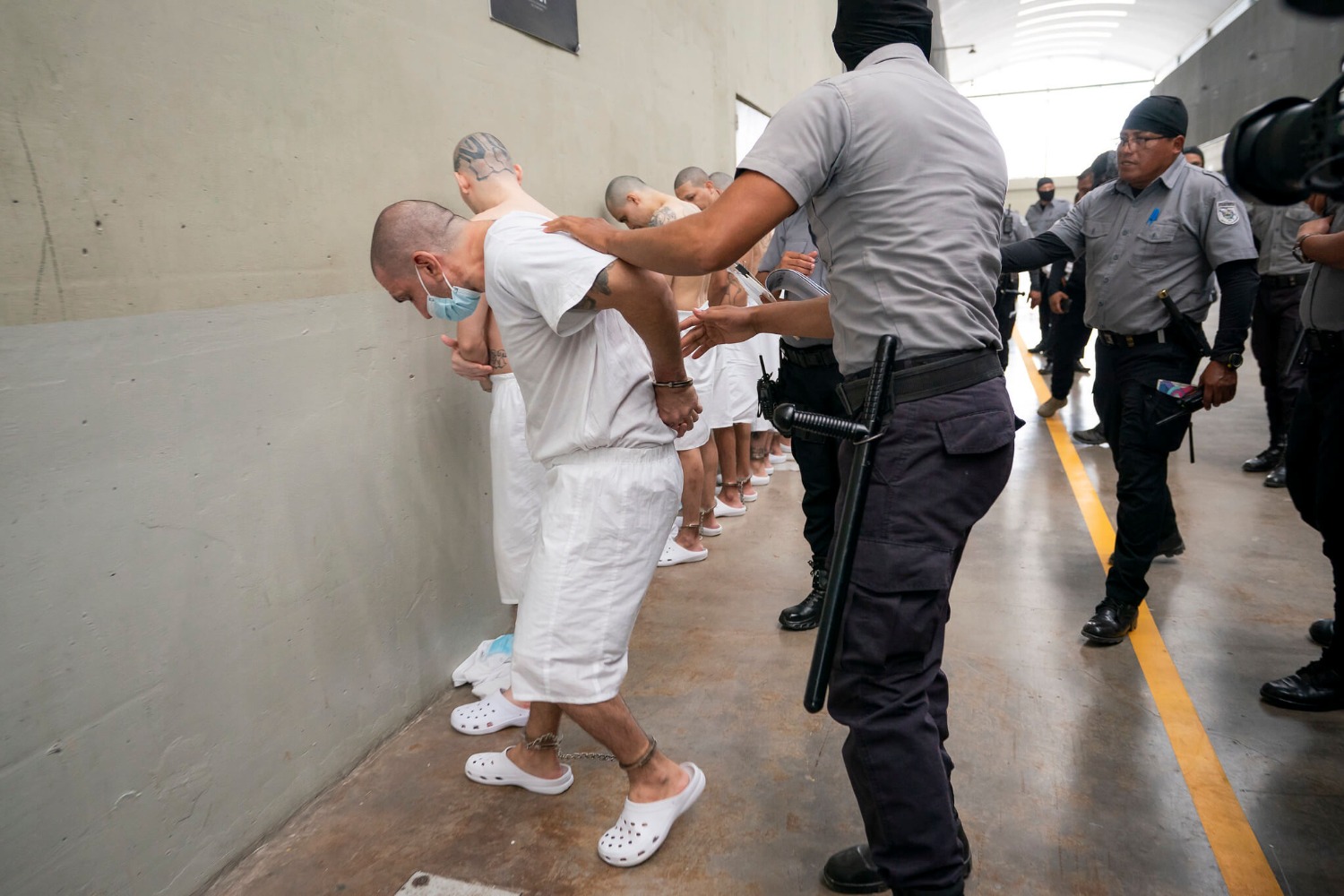The Last Time the Justice Department Prosecuted Election Interference Under Section 241

Published by The Lawfare Institute
in Cooperation With

Earlier this week, Donald Trump announced on Truth Social that he had received a target letter from the special counsel’s office investigating Jan. 6, indicating that he may soon face criminal charges for his role in the insurrection. Reporters have since uncovered three of the specific statutes named in the letter, under which Trump could be charged. The first is 18 USC § 371, conspiracy, which includes conspiracy to defraud the United States. The second is 18 USC § 1512(c)(2), obstruction of an official proceeding. And the third is 18 USC § 241, a criminal statute passed during the Reconstruction era as part of the Ku Klux Klan Act.
Section 241 prohibits conspiracy to “injure, oppress, threaten, or intimidate any person in any State, Territory, Commonwealth, Possession, or District in the free exercise or enjoyment of any right or privilege secured to him by the Constitution or laws of the United States.” The statute was somewhat of a dark horse as far as the Jan. 6 investigation goes—unlike § 371 or § 1512, it hasn’t featured prominently in discussions of potential criminal liability for those responsible for the insurrection—including in the Jan. 6 Committee Report and proceedings. Now that it’s on the table, the press has produced a flurry of guesses about how the Justice Department might plan to use § 241 and what it could mean.
In fact, there’s recent precedent for how the department thinks about § 241 in the context of efforts to interfere with elections—as recent as spring 2023. Just this March, the Justice Department secured a conviction under the statute for interference with the 2016 vote. As speculation swirls around a potential Trump indictment, that case, United States v. Mackey, is worth a second look.
Better known by his online nom de guerre “Ricky Vaughn,” Douglass Mackey was one of the most high-profile Twitter users dedicated to spreading pro-Trump falsehoods during the 2016 election. He was prolific enough that some of his posts, which encouraged supporters of Hillary Clinton to “vote from home” by texting or posting on social media rather than heading to the polls, made a prominent appearance during a 2017 Senate Judiciary Committee hearing on the responsibility of tech platforms for 2016 election interference. A document provided to Congress by Twitter names his posts as examples of “voter suppression activity” removed by the platform.
For five years, though, Mackey seems to have flown under the radar, identified only by his Twitter handle. That changed in 2021. On Jan. 22 of that year—only two days after President Biden took office, and just over two weeks after the Jan. 6 riot—Mackey was charged under § 241 for his “vote from home” posts. In a press release, the Justice Department condemned what it described as Mackey’s “conspiring … to use various social media platforms to disseminate misinformation designed to deprive individuals of their constitutional right to vote.”
Section 241—originally passed to secure the rights of Black Americans against a campaign of white supremacist violence following the Civil War—has long been used to prosecute conspiracies threatening the right to vote. One filing in the Mackey case, the government’s opposition to Mackey’s motion to dismiss the charges, is particularly instructive when it comes to the Justice Department’s understanding of the statute’s scope. Quoting the 1941 Supreme Court case United States v. Classic, the department writes, “a conspiracy to prevent the citizen from voting or to prevent the official count of his ballot when cast is a conspiracy to injure and oppress the citizen in the free exercise of a right secured by the Constitution within the meaning of [Section 241].” The Justice Department also quotes United States v. Mosley, in which the Court held that, “We regard it as equally unquestionable that the right to have one’s vote counted is as open to protection by Congress as the right to put a ballot in a box.”
Elsewhere in the filing, the government makes another argument about § 241 that’s potentially relevant to a Trump prosecution. Mackey argued that he’d lacked “fair warning” that his conduct was illegal under § 241, because no prior prosecution under the statute had addressed a situation exactly like his. The Justice Department didn’t buy it, writing, “simply because a defendant might use a new means to injure the constitutional rights of others to vote in an election does not mean that his conduct is beyond the reach of Section 241.” Perhaps that might also apply to an effort to interfere with the counting and certification of the 2020 electoral vote, in part by encouraging a violent mob to storm the U.S. Capitol—which would certainly be a “new means.” Likewise, ruling against Mackey’s motion to dismiss, the district court wrote, “For more than a century, courts have held that this statute flexibly proscribes conspiracies to injure the right to vote in a variety of contexts and undertaken using a variety of mechanisms.”
The complaint includes transcripts of Mackey and his unidentified co-conspirators crowing over the cleverness of their plans: “Dopey shitlibs will fall for it too,” one wrote while workshopping an image. In between posting deceptive advertisements for supposed methods for “voting from home,” Mackey wrote on Twitter about the importance of “limit[ing] black turnout” to secure a victory for Trump in Pennsylvania. According to the complaint, at least 4,900 separate phone numbers texted the number provided by Mackey in an apparent effort to vote for Clinton. It’s impossible to say how many of those people didn’t vote in person because of Mackey’s scheme.
Mackey was found guilty by a jury in March. He’s currently awaiting his sentencing, which has been set for October. Following the verdict, his lawyer indicated to the New York Times that he plans to appeal the conviction.
When Mackey was first charged in January 2021, I spoke with Deuel Ross, the deputy director of litigation at the NAACP Legal Defense Fund, about how to understand the “Ricky Vaughn” case as part of the broader landscape of § 241 prosecutions. Ross told me then that, as far as he knew, the Mackey prosecution may well have been the first instance in which the Justice Department had brought § 241 charges over the distribution of voting disinformation over social media. (In a 2005 case, United States v. Tobin, the department brought § 241 charges over an alleged effort to jam phone lines on election day in order to disrupt organizations giving voters rides to the polls; the jury did not ultimately convict on these grounds, but the district court upheld the applicability of the statute.)
Despite the novelty of the fact pattern, Ross said, Mackey’s case was “natural outgrowth of the original intent of these criminal statutes.” While the Klan terrorized Black citizens with violence, Mackey sought to misdirect them. But the desired result—disenfranchising voters—was the same. Trump’s attempt to hold onto power in 2020 involves a similar story: an attempt to privilege the votes of Trump’s voter base over the votes of Joe Biden’s not by preventing people from voting but from not honoring the results of their voting. Mackey tried to mislead voters into failing to cast their ballots; Trump’s conduct might be described as an effort to prevent votes from being accurately counted. Mackey’s actions are, obviously, not exactly analogous to Trump’s. Still, the Mackey prosecution shows that the Justice Department understands § 241 as a tool to ensure election integrity, and that it understands the statute to cover a broad scope of conduct.
It’s striking, too, how the government’s use of a Reconstruction-era statute in the Mackey case, and its potential use of the statute in any case against Trump, echoes Attorney General Merrick Garland’s description of the Justice Department’s roots in post-Civil War rights enforcement. “The department’s first principal task was to secure the civil rights promised by the 13th, 14th and 15th Amendments,” the attorney general declared in remarks given on the first anniversary of Jan. 6. “This meant protecting Black Americans seeking to exercise their right to vote from acts and threats of violence by white supremacists.”
During our 2021 conversation, Ross drew a connection between Mackey’s efforts and the violence on Jan. 6, from which the country was still reeling. “The attack on the capitol was to disenfranchise voters who didn’t vote in a particular way, and it was organized largely online,” he told me. “Thematically, it’s similar to someone four years ago getting a bunch of online followers and trying to disenfranchise people by giving them misinformation.”
Now that it appears that Trump may himself face charges under § 241 for his actions on and leading up to Jan. 6, that comment seems particularly prescient.



.jpg?sfvrsn=676ddf0d_7)

